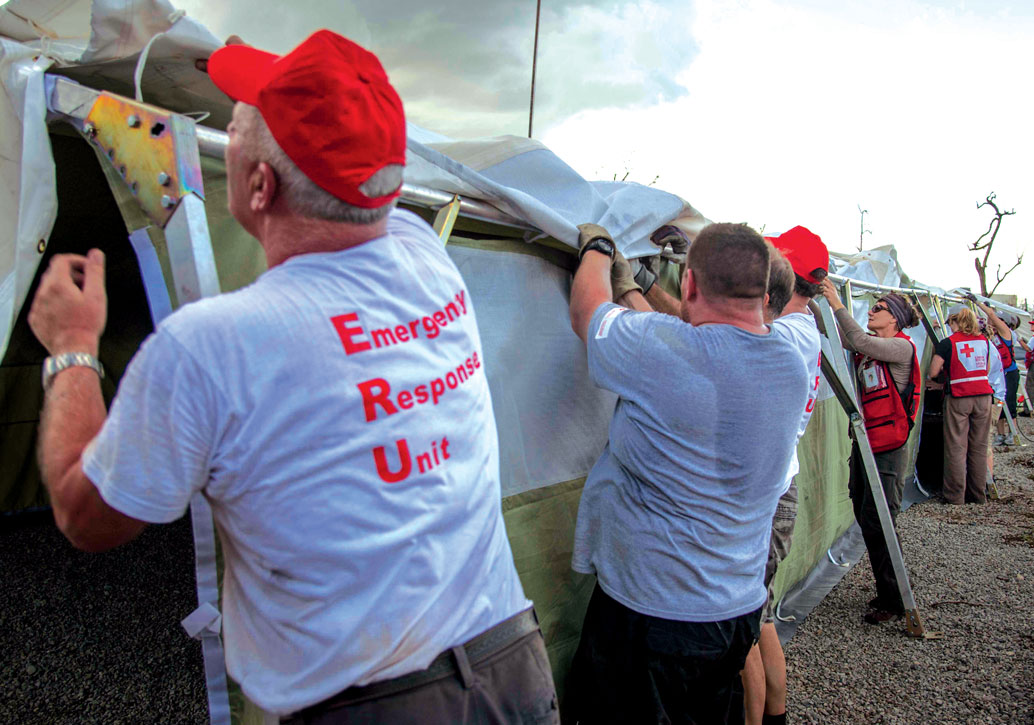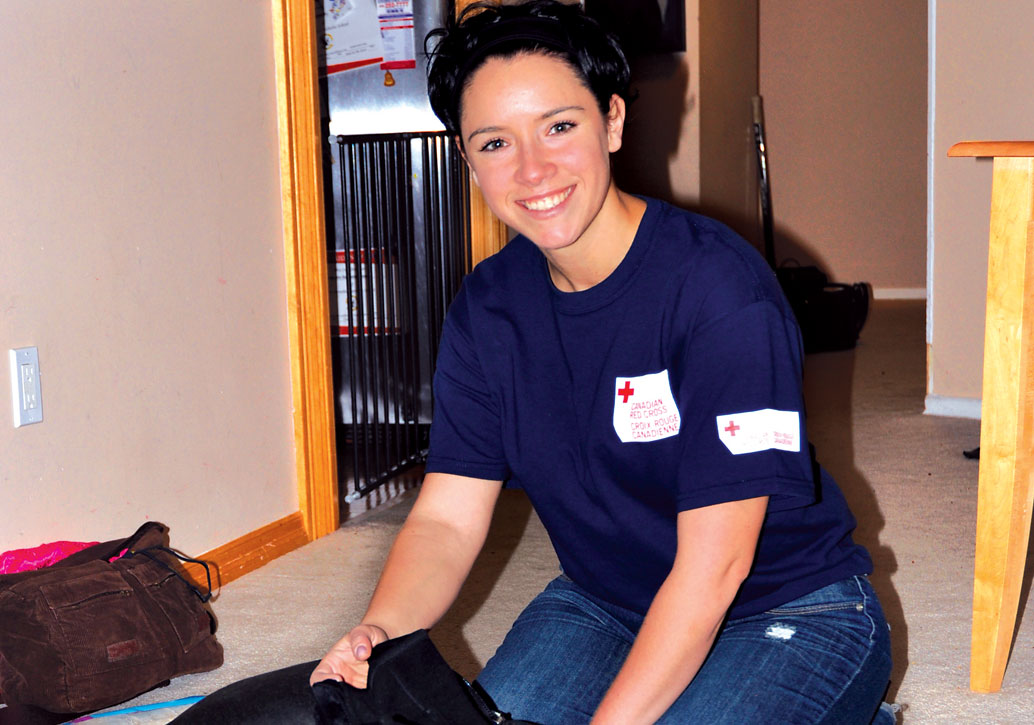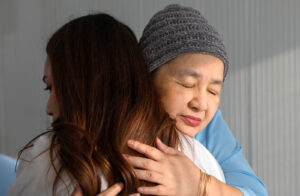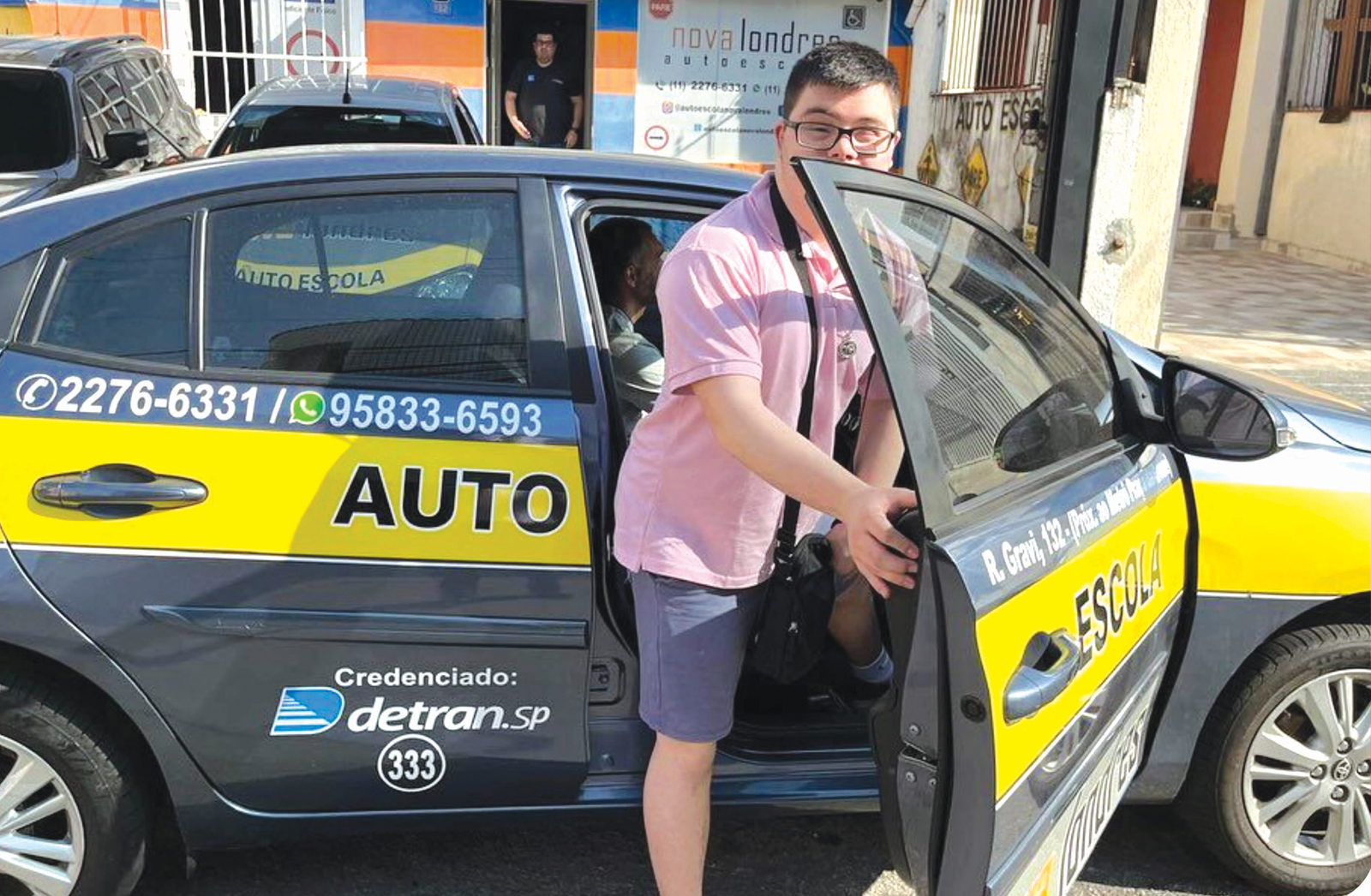Using skills abroad in times of disaster
By Véronique Bourgault, OT Reg. (Ont.)
 Disasters can strike anytime and anywhere and, when they do, needs are urgent and communities cannot wait for help. A quick response is essential in minimizing the toll and providing support to families in need, regardless of whether the catastrophe occurs here in Canada or in another part of the world. The Rapid Response Project (RRP) is a collaborative effort between the Canadian Red Cross and the Canadian International Development Agency. The project enables 24-hour readiness through the procurement, warehousing and deployment of more than $1 million in emergency relief supplies such as tents, blankets and health kits for natural disasters and humanitarian crises.
Disasters can strike anytime and anywhere and, when they do, needs are urgent and communities cannot wait for help. A quick response is essential in minimizing the toll and providing support to families in need, regardless of whether the catastrophe occurs here in Canada or in another part of the world. The Rapid Response Project (RRP) is a collaborative effort between the Canadian Red Cross and the Canadian International Development Agency. The project enables 24-hour readiness through the procurement, warehousing and deployment of more than $1 million in emergency relief supplies such as tents, blankets and health kits for natural disasters and humanitarian crises.
The RRP also supports the highest levels of emergency preparedness by maintaining a roster of highly trained disaster specialists who are ready to respond at a moment’s notice. One such specialist is Sandra Damota, who most recently deployed with the Canadian Red Cross emergency response unit (ERU) in the aftermath of Typhoon Haiyan. When Sandra officially learned she would be part of the team going to the Philippines, she had only 24 hours to receive permission from her employer to take leave from her work as a counsellor, pack all the belongings she needed for the next four weeks and say goodbye to her family and friends.
Before her deployment, Sandra was briefed on the mission ahead and met the other 12 delegates from across Canada, each with an important role to play within the ERU. Sandra’s responsibility on the team was to give psychosocial support to those who visited the field hospital. She refers to her work as providing “psychological first aid.” She was able to use her knowledge and skills to comfort those who had been affected by Typhoon Haiyan, and help them come to terms with their new reality.
When a disaster happens, initial activities are focused on meeting immediate medical and basic human needs. Hospitals are often unable to cope with the increased demand on their resources. This is when being able to rely on a network of highly trained and skilled delegates becomes imperative. Many Canadians may not be aware that their education, training and work experience could be put to use outside of their typical “day job.”
Whether they are deploying relief items or helping communities prepare for and respond to large-scale emergencies, Red Cross disaster-response personnel play a vital role in risk reduction, relief and recovery operations.
With the support of the Canadian Red Cross, the Government of Canada has helped thousands of disaster-affected communities around the world. This has included deploying 2,000 family kits to hurricane-ravaged Haiti, 2,000 shelter kits to Myanmar in the wake of a devastating cyclone and 700 tents to earthquake survivors in China.
How the Rapid Response Project helps
International Disaster Relief Fund
Thanks to donors, the International Disaster Relief Fund makes funds available for life-saving activities within hours of an emergency, and well before any money has been received from other supporters. It also allows the Red Cross to respond to emergencies such as droughts and cholera outbreaks that may not make headline news, but affect hundreds of thousands of people.
Pre-positioned relief supplies
In order to respond to emergency needs as quickly and efficiently as possible, the Red Cross pre-positions essential relief items in warehouses at strategic locations around the world. These supplies can be quickly dispatched in the immediate aftermath of an emergency to provide life-saving assistance.
Aid workers
The Red Cross relies on a number of specialists to manage operations and provide technical expertise in times of need. Emergency-response experts include a variety of medical professionals, managers, technicians and other specialists. These experts can be deployed individually to support an emergency response, or as part of a unit such as the ERU. Delegates are on standby to attend emergencies around the world based on operational needs.
Emergency response units
ERUs are self-contained teams of professionals and standardized equipment that were developed to improve the speed and efficiency of the Red Cross’s response to disasters. The Canadian Red Cross has two types of health ERUs: the basic health care unit and the rapid emergency field hospital.
Advance delegation team
When large-scale disasters (such as the 2005 Indian Ocean tsunami or the 2010 earthquake in Haiti) mean longer-term support is required, the Canadian Red Cross is prepared to assist
communities for the long haul. To manage such operations, the Canadian Red Cross will set up an office in the affected country. The advance delegation team is comprised of program specialists and support staff, with the mandate to quickly set up or expand a Canadian Red Cross office to support longer-term recovery and development programs across multiple sectors.
Early recovery
The Canadian Red Cross takes a holistic approach to recovery, including helping communities with livelihoods, health, water, sanitation and shelter, among other sectors. “Early recovery” attempts to support community coping mechanisms beyond the immediate life-saving initiatives implemented during the emergency phase. The aim is to support the restoration of basic services and minimize longer-term dependency on outside assistance.
Véronique Bourgault, OT Reg (Ont.), is an occupational therapist with the Canadian Red Cross, and she has been involved with the health equipment loan program since 2009. She can be reached at veronique.bourgault@redcross.ca.














